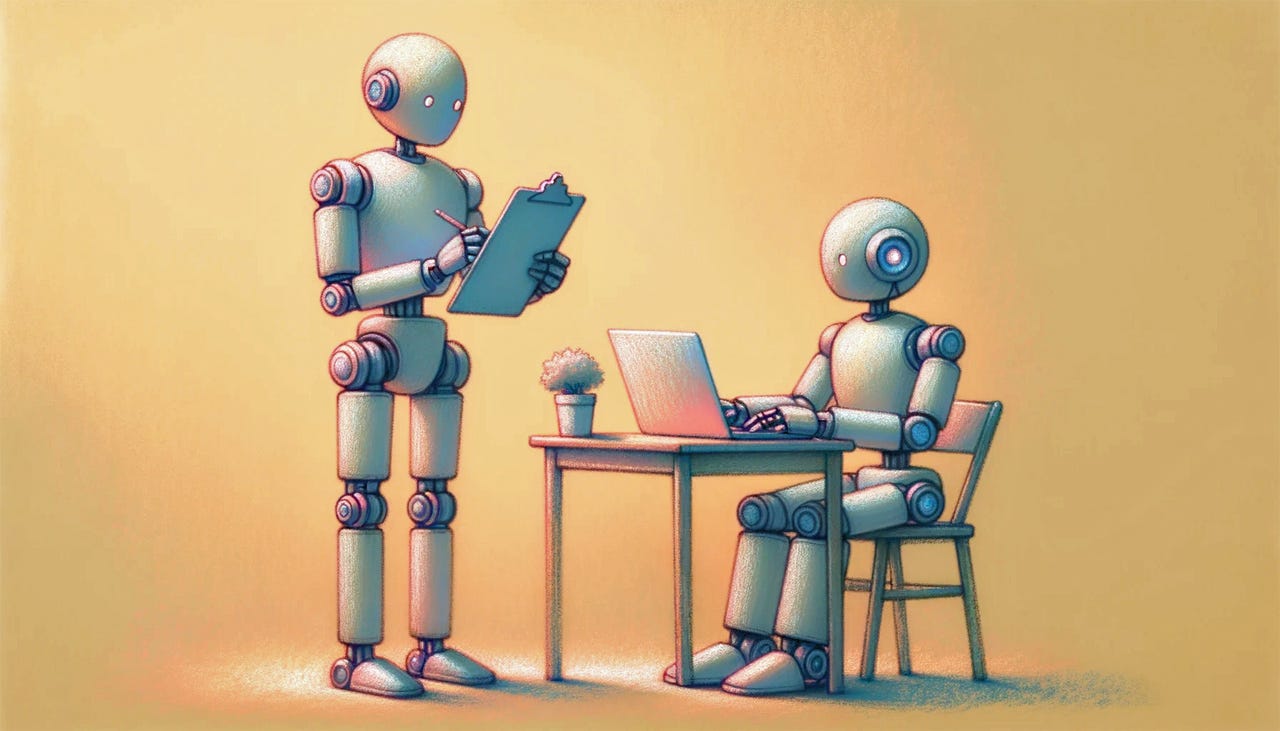How men can be invaluable at the dance
Relational skills matter more than ever, especially for men, so how and where are they best developed?
J. F. Roxburgh, the first headmaster of Stowe School, a private boys’ school in England, described his goal as cultivating men who would be “acceptable at a dance and invaluable in a shipwreck.” That was almost a century ago. But I still like and use the quote to capture something enduring about some of the necessary components of mature masculinity, namely social skills as well as physical courage.
Someone suggested to me recently that we would want to switch the emphasis now. In 2024 the chances of a shipwreck, or equivalent crisis, are thankfully much less, while the need for social skills is much greater. We still want men to be acceptable in the wreck, but invaluable at the dance.
I’ve spent a fair amount of time recently visiting and speaking at schools for boys, and the emphasis is very clearly much more towards the development of social skills, emotional intelligence, and so on. I thought about this to some extent before writing Of Boys and Men, but not enough, and I’ve been thinking about it a lot since. I find myself constantly quoting these lines from the anthropologist Margaret Mead:
Every known human society rests firmly on the learned nurturing behavior of men….This behavior, being learned, is fragile and can disappear rather easily under social conditions that no longer teach it effectively.” (Male and Female, pp. 189, 192.)
By “nurturing” Mead meant a broader range of activities than the word might conjure today, including providing for the tribe, protecting territory and so on, as well as direct care for children and others.
When I launched Of Boys and Men, one of my first public events was at AEI, where I was joined by AEI’s Scott Winship, Beth Akers and the Manhattan Institute’s Kay Hymowitz. The whole conversation was terrific. It remains one of the best engagements I’ve had around the book, especially on the more conservative side of the aisle. You can watch it here:
The higher skill demands of modern marriage
Something Kay Hymowitz said struck me with the force of an important and neglected truth, and I’ve been quoting it ever since. Kay is someone who has thought and written a lot about this subject, at book-length in Manning Up and more recently in essay form in “Where the Boys Aren’t”.
She made the observation that more egalitarian marriages require more relational skill. There’s more negotiation over roles and responsibilities, more of a need to be flexible about identities, and a higher expectation of emotional intimacy and support.
I think that’s exactly right. In the old world where the roles of men and women were more strictly delineated, relational skills were less important. There were no difficult conversations on Sunday evenings over who was doing which school run or sports drop off or doctors appointment. There was no conflict over the question of who would stay home for the day if one of the kids was sick (it was Mum). Traditional marriages required very few sentences to be exchanged in order to function, other than “What’s for dinner?” and “Where’s your paycheck”? Modern marriages, by comparison, require the diplomatic skills of a UN Ambassador.
Kay’s provocative application of this insight was that some of the class gaps in marriage might be the result of a class gaps in relational skills. Certainly the marriage gap is a striking one. Here’s the trend in share of births outside marriage by the education level of mothers (the data drawn from Melissa Kearney’s essential book The Two Parent Privilege):
If it’s true that marriage is a higher-skill endeavor than it used to be, for the very good reason that it is a more egalitarian institution, and if it’s also true that the relevant skills are more developed among those with more education, Kay Hymowitz’s skill explanation makes sense. Not instead of more traditional economic arguments of course, but as a potential supplement to them.
Breadwinning = proxy for having your act together
I also think it might help explain some of the apparent stickiness around expectations of male breadwinning. You know those surveys showing that earnings potential is still ranked as much more important in a potential male partner? Pew finds for example that 71% of Americans say that a man needs to be able to “support his family financially” to be a good husband or partner, compared to 32% who say the same about women.
This creates some interesting conversations among young men. They will sometimes complain, with some causes, that they are being told, on the one hand: “Be a new man taking care of the kids and not expecting to earn more than me!” and, on the other: “But make sure you make enough money to look after me and kids!”
I’ve asked a lot of people, young women especially, what’s going on here. One of the most interesting answers I’ve gotten is that breadwinning potential is a good signal of all kinds of skills and attributes. A man who can “support his family financially” likely has the skills that would also make him a good stay-at-home Dad. As one former colleague of mine, a young highly successful woman, put it: “That question is the closest proxy to ‘A guy needs to have his shit together’, which is what women are looking for”.
Again, this is about life skills. The kinds of skills that make you a good earner overlap considerably with the kind of skills that make you a good life partner, and a good co-parent. Call them EQ, or soft skills, or non-cognitive skills. if you like. But I prefer the term relational skills for a lot of what we’re talking about.
Men are doing a lot more fathering than in the past, too, and hopefully will do even more in the future. Parenting is the ultimate test of relational skill that there is (as well as of patience, resistance to sleep deprivation, and much more besides). Parental skills and partnership skills are obviously hugely transferable too. Men with the skills to be a good Dad are likely to also have those to be a good partner, and vice versa.
EQ in the workplace
And increasingly, to be a good worker too. Harvard’s David Deming calculates that between 1980 and 2012, “jobs requiring high levels of social interaction grew by nearly 12 percentage points as a share of the U.S. labor force.” Meanwhile “math-intensive but less social jobs . . . shrank by 3.3 percentage points over the same period.” In other words, the labor market is shifting towards jobs that require higher levels of relational skill:
This trend is likely to accelerate with the introduction of AI. Relationships are one thing humans can do better than machines, and hopefully always will. I’ve been assuming up until recently that AI will impact women’s jobs more than men’s jobs, unlike previous automation trends which replaced more physical labor and so impacted men more. This is the view of most experts. Goldman Sachs estimates that about half the jobs in female-dominated fields are automatable by 2030, compared to 20% in male-skewed occupations. Different numbers but the same basic message can be found in reports from Brookings, BCG and McKinsey.
I still think that’s true in the short to medium term. But in the longer run it seems likely that women will be better able to adapt to the post-AI labor market, as the premium on relational skills rises even more. That could be wrong, of course, just like everything that’s being said about AI. Maybe it will be risk-taking, competitiveness and/or hyperfocus that will be more important. Those are attributes that tend to skew male.
But I think it’s more likely it will be relational skills that win out biggest in the future labor market. And if that’s right, ensuring the development of these skills in men is vital not only for their chances of forming of family, but of building a career.
How to create male relational skills
The question then is how best to help boys and men develop these skills. As I mentioned, I’m spending a lot of time talking to educators and students at boys schools. I also spent some time at Wabash College recently, one of the very few surviving male-only colleges in the country.
A big part of the pitch of these single-sex institutions is precisely along these lines: that they can help boys and men develop stronger relational skills, precisely because they are single-sex. Without girls and women around, boy and men are both able and required to get better at expressing themselves, and learning communication skills.
If that’s true—and it’s a big, unknown if—then the case for single-sex education for boys, or at least for some all-male spaces, might ironically be stronger in a more gender-egalitarian world than a sexist one. Maybe all-male institutions are a bad idea under patriarchy, but a better one under conditions of more equality? I don’t know. But it’s an idea that’s rattling around my head. And I am sure that at least some male spaces are a good idea, as I argued in a previous post, “The case for male spaces”. Here is an excerpt from that post:
There's been a reasonable concern that in a professional setting, all-male groups or activities might serve to promote men’s opportunities at the expense of women. In general I think that even in these settings, that fear is largely outdated. But more importantly, the fear of the Old Boys Club in the office should not extend to a general opposition to male spaces of any kind, even for boys.
But this argument for male spaces places me in direct opposition to Alice Evans, and especially her post “How Male-Dominated Networks Lock Women Out”. This is painful because I am a big Alice Evans fan. And in fact we both just featured in a really good piece from DW News, the German national broadcaster.
In her essay, Evans writes:
Men - in patriarchal societies - are uniquely encouraged to socialise, explore and provide for their families. They come to dominate economic and political networks, while simultaneously developing social skills and connections.
Fraternities are self-perpetuating. If men typically socialise and exchange favours with other men, they may feel more comfortable and maintain sexist stereotypes. Male-bonding consolidates trust and respect.
But it’s important that Evans is specifically focused in her analysis on low- and middle-income nations, and she reports specifically from Uzbekistan. I don’t think the same arguments apply in general in advanced economies with more gender equality like the U.S. (I’m sure Alice will let me know if she disagrees). There are exceptions of course. I worry that politics, for example, can still have the feel of an Old Boys Club, with male-only networks still acting to exclude or at least discourage women. (This is one reason I’ve argued for gender quotas in the political domain).
So, invaluable at the dance? Yes. If the dance is now the dance of more equal marriages, more engaged parenting and higher-EQ workplaces, us guys do indeed need to make sure we are invaluable in all those spaces.









I love seeing/reading you wrestling with these ideas.
“That question is the closest proxy to ‘A guy needs to have his shit together’, which is what women are looking for”. - an interesting take, which I think is likely correct.